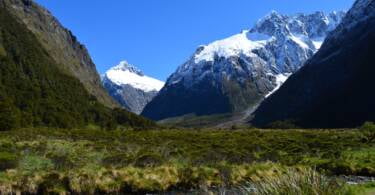People usually travel in groups or in tandems. Each member of a travelling group or pair has to adapt to other members’ preferences. As a result, they can’t see and do many things they’d like to. Also, more often than not, group travels include only the mainstream landmarks of the area in question.
Contrary to that, solo travellers have a chance to see new aplaces from a different point of view. They can also visit only the places of their special interest.
To top it all off, it’s easier to extend your knowledge when you’re travelling alone. So, here’s what we think you can learn as a solo traveller.
Improving organisational skills
If you decide to manage your trip on your own, you’ll improve your organisational skills.
From the online search and booking process to the trip itself and real-life navigation, every solo traveller becomes a sort of a travel agent.
After organising several trips on your own, you’ll already have your favourite websites for accommodation, tickets, as well as forums for sightseeing. In addition to that, you’ll probably join several groups in social media to collect valuable information about other people’s experiences.
All these things will make you a better organiser, which can come in handy in your professional life.
Who knows, maybe you’ll start a career in tourism, as well.
Booking accommodation on the go
When you’re travelling alone, the most convenient thing to do is book accommodation on your own.
Thanks to the Internet, today you can contact hotels and accommodation owners directly, without any middlemen.
However, this can be a bit risky, especially for private apartments and rooms. That’s why it’s much better to make your reservations via Booking, Airbnb, Trivago or any other similar website. If you’re looking to visit McKinney Texas, you can just go check out these apartments for rent in McKinney as you might find the one that will suit your lifestyle. They’re registered companies, which gives you some sort of legal security.
And if you want to get accommodation discounts, follow the Travelodge deals and seize the opportunities as they arise.
Expanding your reading list
Scientists claim that people read less today than fifty years ago. While this just may be so, you can bust this myth during your solo trips.
As a matter of fact, solo travellers are among the most exquisite readers. When you spend hours and hours on buses, trains, and planes, the most convenient thing you can do is read.
And today you don’t have to carry dozens of books with you. Just get an e-reader and load it with your favourite books before you set off for your adventure.
You can have a look at the book recommendations for solo travellers made by the guys from The Broke Backpacker.
Working on networking
For many modern people, travelling doesn’t only mean taking a rest for a specific number of days and then going back home.
On the contrary, a lot of people nowadays work on the go. What’s more, they establish more contacts that way than via LinkedIn or any other similar network.
And when you’re travelling alone, it’s even easier to generate leads for your business or even befriend your potential business partners.
In line with that, don’t hesitate to bring up the business matter when you realize that you’re talking to someone that could appreciate such communication.
Also, don’t forget to contact the generated lead via online channels soon after the introduction.
Learning new languages
Travelling on your own will force you to use other languages. Although English is spoken worldwide, it doesn’t mean that you’ll be able to use it everywhere. For instance, if you go to a small village in Normandy or a hamlet on one of the Croatian islands, the locals might not be able to speak a word of English.
What’s more, people like it when tourists make an effort to learn their language. When you’re on your own, you have the freedom to make mistakes while trying to use local expressions. The local people will appreciate your will to use their language.
That’s why it’s useful to learn the basics of the language for each country you’re travelling to. You can either learn languages via apps or go for printed language-learning guides.
Another benefit is that you’ll be able to get in closer touch with the local culture, as well.
Improving your knowledge of geography
When you decide to arrange everything for your trip on your own, you need to learn more about the region(s) that you’re going to visit.
For instance, people who like driving will have to get familiar with the local roads and pay tolls, if any. This is where the ViaMichelin website and app will come in handy. With this tool, you can calculate your mileage and consumption, as well as the fuel prices and pay tolls along the way.
Additionally, you can also use Google Maps. Since it isn’t as informative as ViaMichelin, it’s a fine choice for people who don’t drive. Also, its GPS is one of the most convenient navigation apps out there.
Last, but not least, get the local map when you get to the chosen destination. It might contain the roads and landmarks that those large-scale solutions don’t have.
Mastering survival skills
Younger generations like to travel with no strings attached. In Bob Dylan’s words, they like freewheeling.
The Internet and the gadgets they can use make it a lot easier than only ten years ago.
Still, it’s vital to learn the basic survival skills before you hit the road.
In line with that, you need to take the basic survival kit with you, especially if you’re planning to go camping or hiking in the country.
Even if you’re going to visit only urban areas, the basic first-aid kit is something you should always keep in your suitcase or backpack.
Finally, learn how to prepare some simple food in nature, just to make sure you keep your stomach healthy during your stay.
Getting to know your limits
Travelling in a guided group is a kind of a throwback to the school age. The only difference is that you don’t travel with your head teacher but with a guide.
However, travelling alone demands a completely different mindset. No matter if your destination is a modern urban environment or a challenging area in the wilderness, you have to stay alert all the time.
On the one hand, such travels educate you on the go and improve your knowledge of things in general.
On the other, they force you to think in a faster and clearer way. If you miss the last underground train from the city centre, you’ll have to pay for a taxi or walk to your hotel/apartment.
Similarly, if you decide to walk 10 km in nature, you’ll leave your comfort zone and achieve something that will make you proud.
Feeding your soul
Solo travellers have a great opportunity to turn into soul travellers. By this, we mean that they can try to understand other cultures and religions more easily than group travellers.
You can enter any church, mosque or synagogue you come across and stay inside as long as you want it.
Furthermore, you have more time to visit museums, small local shops, and authentic restaurants. Simply put, food can tell you a lot about a culture. By trying different meals and drinks and learning more about their purpose and origins, solo travellers can gain in-depth knowledge of the culture they’re visiting.
Last, but not least, if you want to meet a certain place in an original way, walking is the best way. From brisk morning walks to languish twilight strolls, let the ambience and energy of the destination you’re visiting teach tell you more about it.
Conclusion
If you’re having second thoughts about travelling alone, it’s time to make up your mind and start packing up. You’ll have much more freedom and flexibility if you take the plunge and start exploring the world as a solo traveller. Of course, you’ll have more responsibility to properly organise every single bit of your trip. In turn, you’ll improve your sense of organisation and orientation. To conclude, travelling alone from time to time will help you get to know yourself and the world around you to greater detail.









